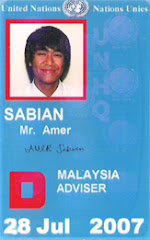A more insightful look at the voting process that was conducted within the General Assembly that day, shows that 143 Member States voted in favor, 11 abstained and four, which included Australia, Canada, New Zealand and the United States, voted against the text. It's of no surprise that these of all member states of the U.N. would vote against the Declaration, particularly the U.S. At least Canada gave reasoning for their vote which ultimately came to their “significant concerns” about the language in the document.
Nevertheless, what's truly surprising is the manner in which the peace-loving, human rights fighting, United States voted. As commented by Arthur Manuel, a leader of Canada's indigenous peoples, "The entire wealth of the United States, Canada, and other so-called modern states is built on the poverty and human rights violations of their indigenous peoples." His statement becomes seemingly valid when you think about the history of the United States. Is this not the same country that built itself on the suffering of an entire nation predominantly inhabited by indigenous people? Today, these natives of the United States commonly referred to as "Native Americans" and not Indians, have somehow been able to preserve their indigenous lifestyle on what the U.S. governments call "reserves."
Here's a map to depict the vast amount of territory they possess today:

If you so desired to inquire about what tribes these territories belong to you can find out more here.
Nevertheless, it's not that shocking that the United States didn't vote in favor of the Universal Declaration on the Rights of Indigenous Peoples because after all when you give your indigenous people their own territories, take care of their children educationally, and allow them to create casinos on their land, what more do you need to give them?

.jpg)
No comments:
Post a Comment